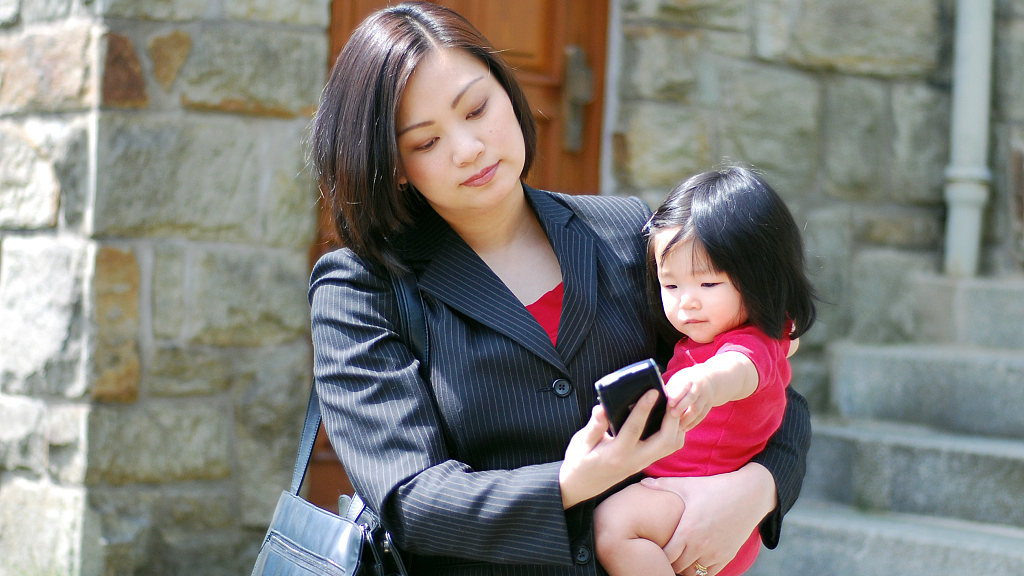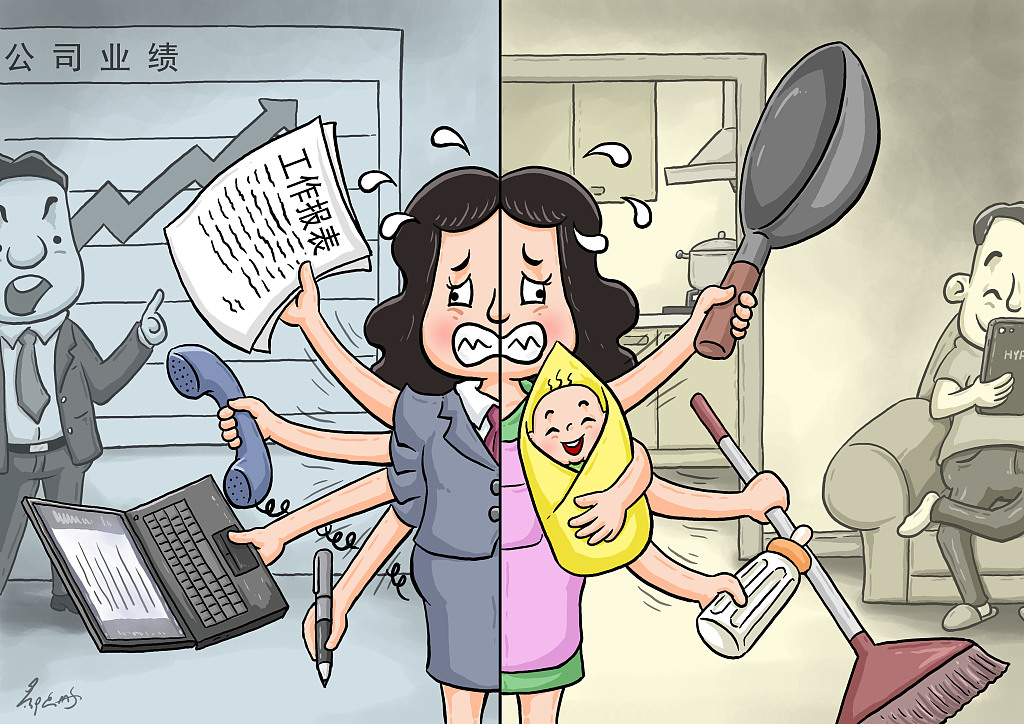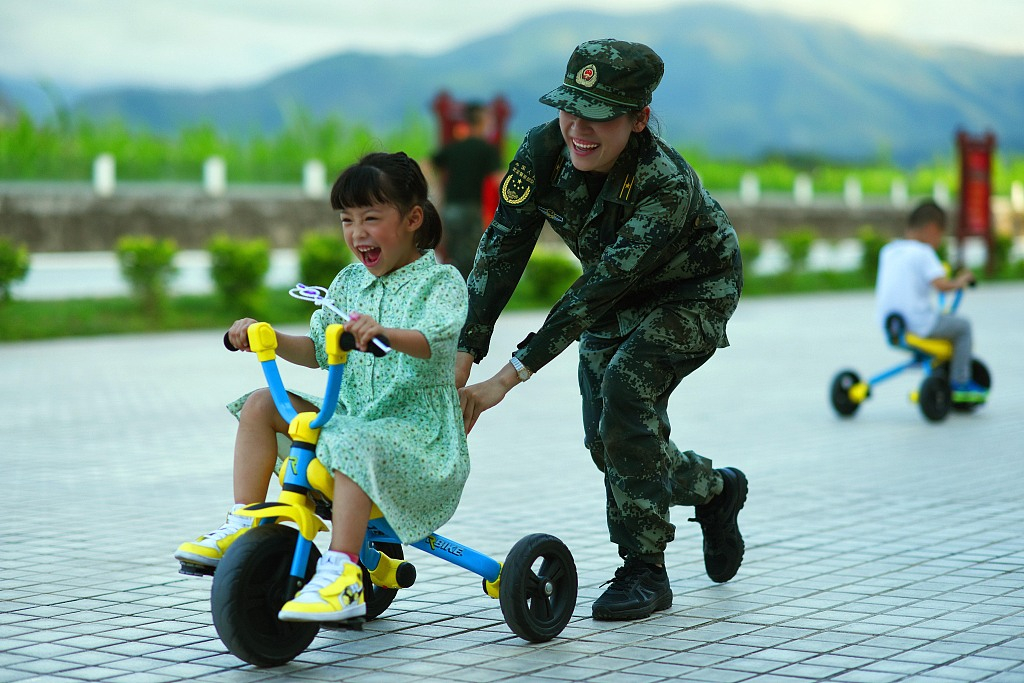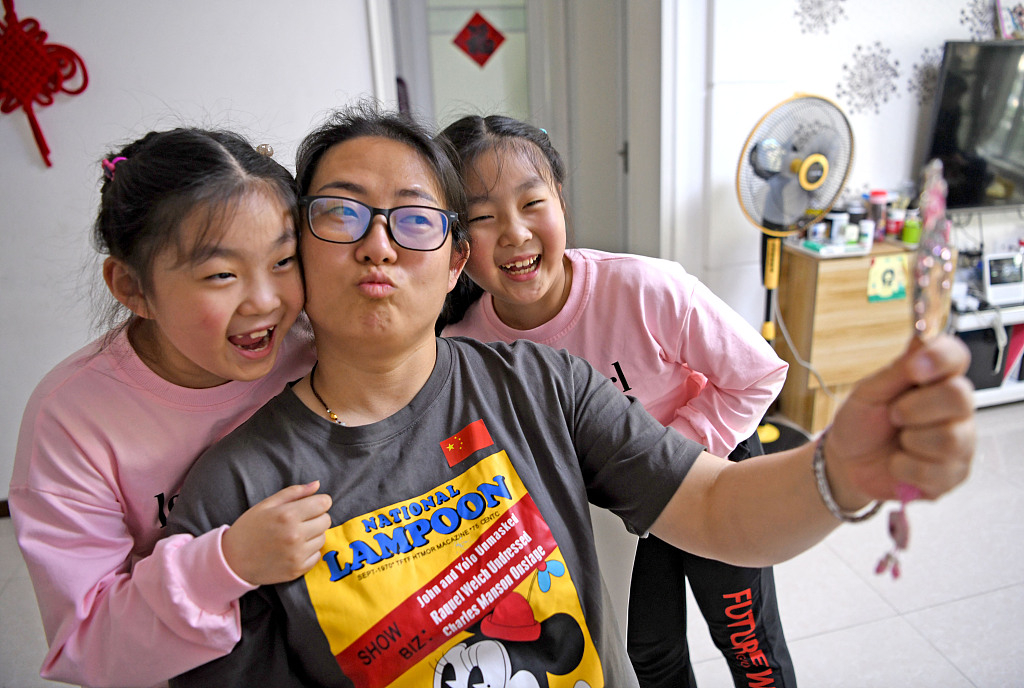
Working mothers have been striving to carve out a place for themselves in the working world while balancing motherhood. /CFP
Working mothers have been striving to carve out a place for themselves in the working world while balancing motherhood. /CFP
May 10 marks Mother's Day, a day for people to show their appreciation toward mothers and mother figures worldwide. According to World Bank statistics, in 2019, China's female labor force participation rate stood at 68.4 percent, a little bit higher than the world average of 52.4 percent.
Working mothers nowadays have been striving to carve out a place for themselves in the working world while balancing motherhood.
A new report on the current status of working mothers in China in 2020 has shown that mothers juggling full-time jobs have shifted the traditional role of the family caregiver to the economic backbone of their families.
The report, which was released by Chinese online recruitment services provider Zhilian Zhaopin, shows that the average monthly salary of working mothers in China is around 9,400 yuan (1,330 U.S. dollars), which is 788 yuan higher than single women and 2,335 yuan higher than married women with no children.

Caring for the family while still being a productive employee is the main obstacle many career moms face. /CFP
Caring for the family while still being a productive employee is the main obstacle many career moms face. /CFP
The report also unveils that the income of working mothers accounts for 37.3 percent of the total family income, 1.5 percentage points higher than the 35.8 percent contribution married women with no children make.
Working mothers also tend to be more optimistic about their careers compared with single women and married women without children, with 15.4 percent of them thinking they will be promoted in the next year.
Caring for the family while still being a productive employee is the main obstacle many career moms face. About 20.3 percent of working moms think taking care of the family distracts them from their work, and parenting makes it difficult for some to pursue their careers.
Taking care of the family means they need to spend much more time doing housework. The report showed that working mothers spend an average of 1.6 hours per day doing chores, which is an extra burden outside of work.
About 87 percent of working mothers spend time with their family after work, which is twice as much as single women. The time they spend on leisure and entertainment activities is much less than their single counterparts.

A military mom plays with her daughter at a base in Shenzhen City, south China's Guangdong Province on May 8 to celebrate the upcoming Mother's Day. /CFP
A military mom plays with her daughter at a base in Shenzhen City, south China's Guangdong Province on May 8 to celebrate the upcoming Mother's Day. /CFP
Working mothers also tend to spend their income on their family members. According to the report, around 81 percent of working moms spend their income on child-rearing and education, while the expenses of single women are mainly spent on personal activities such as dating and shopping.
Marriage and childbearing are affecting women's values as well. Single women think independence and caring for themselves are more important, while working mothers value the family more. According to the report, working mothers are more likely to give up pursuing their careers for marriage, childbirth and family.
It said 11.6 percent of working mothers have been transferred to other posts or had their salaries lowered during marriage and childbirth, and 26.3 percent of them have been forced to give up their careers to take care of the family.

A nurse who was a part of the Anhui medical team that supported Wuhan in the battle against COVID-19 takes a selfie with her twin daughters on May 6 in Huainan City, east China's Anhui Province. /CFP
A nurse who was a part of the Anhui medical team that supported Wuhan in the battle against COVID-19 takes a selfie with her twin daughters on May 6 in Huainan City, east China's Anhui Province. /CFP
Even though working moms sacrifice a lot for their families, many women still choose to get married and give birth to children. Around 60 percent of working moms had a positive attitude toward marriage and childbirth.
The report pointed out that working mothers still need more policy and welfare support, as well as social inclusiveness. Only in this way can the family become the armor of working mothers, instead of their weakness, the report said.
In recent years, authorities in China have rolled out policies to protect women's rights in the workplace, such as extending maternity leave to between 128 and 158 days. Paternity leave is between 15 and 30 days.